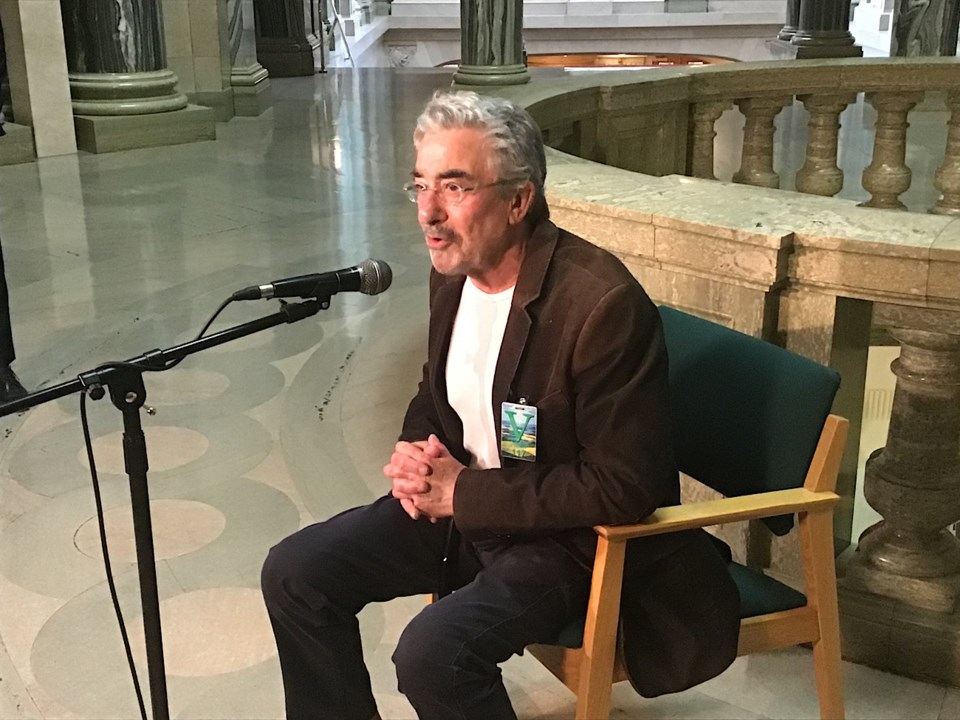REGINA — The costs of upgrading cochlear implants was an issue raised at the legislature this week.
Attending the legislature on Tuesday was Rod Rossmo, who has received the cochlear implant and who has been told his equipment needs an upgrade. The issue is that an upgrade is expensive, and is not currently covered by the province.
The issue was raised by Saskatoon Fairview MLA Vicki Mowat in Question Period. From Hansard:
“In 2021, Rod received a letter from Cochlear Americas, the company that produces the cochlear implants. In the letter, they stated that he would need to upgrade equipment. Without this replacement, Rod will no longer be able to hear.”
Health Minister Paul Merriman said he would meet Rossmo after Question Period. He also defended the government’s work with cochlear implants.
“Mr. Speaker, our government has done some amazing work with cochlear implants on the initial costs of that. We’ve also done screening for infants that we announced a few years ago in the budget to be able to make sure that children that were born right in the hospital had that initial screening.”
“And I remember Nairn from the Saskatchewan Deaf and Hard of Hearing was outside saying — he was almost in tears, Mr. Speaker — saying that this government has saved lives with its Saskatchewan Deaf and Hard of Hearing.”
Mowat pointed out the upgrade Mossmo needs costs upwards of $23,000.
“We are in an affordability crisis, Mr. Speaker. People are struggling to put gas in their tanks, put food on their tables, and to pay their bills. The Deaf and hard-of-hearing community continues to experience discrimination in our province, and it should not be made worse by this government. Health technology such as pacemakers and prosthetics are covered provincially. As this technology wears out, why would the government not consider this as a similar requirement for Rod’s health?”
Merriman again reiterated he would be more than happy to meet Rossmo. “As far as the replacement cost, this is something that I’ll have to look into, the specifics of it, Mr. Speaker.”
In speaking to reporters afterwards, Rossmo said that according to the letter he received from Cochlear Americas, he would need to upgrade his current processor, Processor 6, to a Processor 7 by May 31, 2023.
If he did not convert, “there will be no service or supply around the present processor. If it breaks down, and it will break down, I will now be deaf,” Rossmo said to reporters.
Rossmo said he phoned his audiologist, and it was explained that companies turn over the processor every eight to ten years.
He was told a new processor for one side would cost $11,730, and that Cochlear would rebate him $2,500 if he makes the change before March 31, 2023. If there is no government funding, Cochlear will pay the recipient another $1,000.
His reaction was to say it was “outrageous” that he had to turn his processor in, and that there was no funding in the province for technological upgrades.
“I said I have to do something. So I started with Vicki Mowat, Vicki listened to me, we wrote a letter to Paul Merriman and I’m saying we need funding. We need funding to help the cochlear community with technological upgrades and we need it now, because we have a time factor. Should we not make that time factor, we do not get the rebate.”
He noted there are upwards of 1,000 people in the cochlear community in the province who are reliant on support for technological upgrades.
“We have a real medical issue,” said Rossmo. He compared it to cardiological upgrades like pacemakers or prosthesis, which he said are covered.
“These are not hearing aids, they don’t amplify sound, they process sound,” Rossmo said. “It allows people and children who would not have the benefit of hearing to hear, and live in a world of sound. And now we need the government to man up, and say okay, the technological upgrades are part of the cochlear world. We need to find a way to fund this.”






